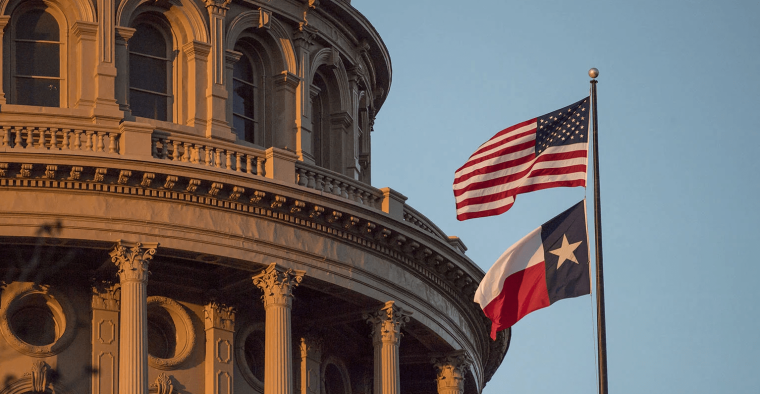
Texas lawmakers just passed a new social media law on Wednesday, June 14th, banning all users under 18 from accessing social media platforms. The only way for minors to get back to the platforms is to obtain consent from their parents.
“Social media is the pre-1964 cigarette.”
Texas representative Jared Patterson proposed a Bill that bans users under the age of 18 from using social media pic.twitter.com/Qc1RhGBwWV
— Dexerto (@Dexerto) December 10, 2022
While the law specifically targets social media sites, the way it was written could also include almost every online service provider. It comes as the state’s latest attempt to legally age-gate the online world.
Texas’ new law is called the Securing Children Online Through Parental Empowerment (HB18). As such, it will require young users to obtain the consent of parents or guardians if they wish to open an account. If parents grant their consent, they can request access to the data from the minor’s social networks.
Online platforms will have to accommodate these requests by creating a simple, easily accessible method for parents to oversee what their children are doing online. The bill has already been signed into law by Texas Governor Greg Abbott.
Should Parents Have Insight Into Their Children’s Social Media?
The bill has also attracted criticism, particularly regarding the privacy of minors’ data. Some believe that minors’ privacy would be exposed if their parents had access to their personal online information. However, Texas state representative Shelby Slawson said that the elevated level of insight is necessary to prevent potential harm from platforms.
Earlier this year, Slawson argued,
Our children are experiencing all manner of harms via overexposure to digital platforms and predatory algorithms, manifesting in increased rates of self-harm, suicide, substance abuse, sexual exploitation, human trafficking, and other mental health issues.
Apart from being able to request access to accounts, parents and guardians will also be able to request the deletion of the accounts and even bans on targeted advertising. This is intended to be one of the measures against inspiring minors to make online purchases.
In order to be able to do any of this, however, parents will have to verify their identities and their relationship to the minor. Apart from that, service providers will have to develop and implement some type of strategy that would prevent minors from accessing harmful content.
This can include any type of content that promotes and glorifies substance abuse, harassment, self-harm, stalking, child sexual exploitation, grooming, and more. In other words, some sort of advanced filtering technology will need to be implemented moving forward.
Any social media platform operating in Texas that violates the legislation will be subject to lawsuits.
Protecting Children from Harmful Content
The new move is seen as controversial by some, but it is gaining more and more strength on a global level. For example, Texas is not the first US state to do this. That was Utah, which banned social media use for anyone under 18 about a month ago. Its governor, Spencer Cox, said, “We’re no longer willing to let social media companies continue to harm the mental health of our youth.”
Some social media platforms started age-limiting users on their own. One example is TikTok, which recently announced changes for users under 18, such as limited screen time. As it grows and evolves, social media is becoming more fun but also more bizarre and in many cases — more risky.
Children who use such platforms have been exposed to several risks, such as online bullying, scams, and some dangerous trends that emerged in the past. Many feel that social media, which has been around for about two decades now, needs to be regulated, similar to alcohol or tobacco.
Related Articles:
- TikTok and AI Are Revolutionizing Search By Making It Personal
- 38% of TikTok Users Think the App Should Be Banned and Another 23% Are Not Sure
- TikTok Becomes First Ever App to Break $1 Billion in Consumer Spending in 1 Quarter
What's the Best Crypto to Buy Now?
- B2C Listed the Top Rated Cryptocurrencies for 2023
- Get Early Access to Presales & Private Sales
- KYC Verified & Audited, Public Teams
- Most Voted for Tokens on CoinSniper
- Upcoming Listings on Exchanges, NFT Drops